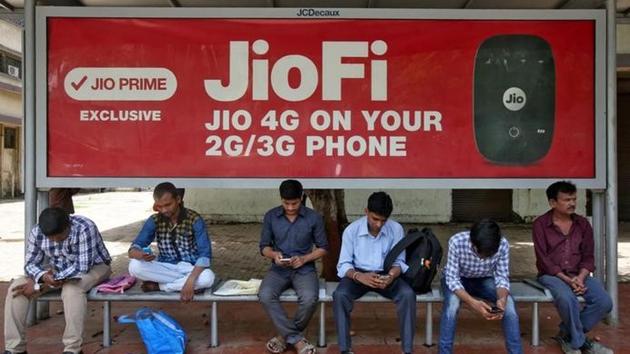The big question: Will Reliance JioPhone clash with net neutrality?
There isn’t much clarity about the nature of Reliance JioPhone in the context of whether it will limit its users to download applications from its store or allow them to use outside applications.
Reliance Jio Infocomm Ltd’s latest attempt at disruption in the Indian telecom space is now targeting smartphone makers — particularly those who make the more affordable feature phones — but lack of information on the product itself has sent alarm bells ringing, according to analysts.

A July 21 report by Deutsche Bank Market Research informed its investors that it believes JioPhone is based on a Firefox mobile operating system and since the applications on a JioPhone will come from its own store, it will provide a “walled garden” to its subscribers, which “goes beyond the traditional connectivity”. “We note that Jio has an entire spectrum of apps spanning the social, content, payments verticals. Thus, a JioPhone user will likely have a very low churn both due to the ‘refund feature’ and the software platform,” the Bank said in the report while staying clear from calling it a net neutrality issue.
Analysts at Kotak Institutional Equities said a walled garden, which is any set of pre-installed apps (Jio apps or non-Jio apps) on a handset where the consumer cannot install competing apps, flirts with the boundaries of net neutrality.
RS Sharma, chairman of the Telecom Regulatory Authority of India (Trai), did not respond to phone calls and text messages. An email sent to Jio remained unanswered till press time.
So, is there no room for other apps on JioPhones?
“I am not very sure of technicalities but unless there is an independent app store, the net neutrality purists won’t be happy. That operators can’t act as gatekeepers is the fundamental premise of net neutrality,” an industry analyst said.
To be sure, as of yet, there is not much clarity about the nature of JioPhones in the context of whether it will limit its users to download applications from its store or allow them to use outside applications. Trai’s differential pricing ruling in February 2016 has two parts: Firstly, that “no service provider shall offer or charge discriminatory tariffs for data services on the basis of content”. That is not happening in this case, because this tariff is for the device and not content. However, the order also states that “no service provider shall enter into any arrangement, agreement or contract, by whatever name called, with any person, natural or legal, that has the effect of discriminatory tariffs for data services being offered or charged to the user on the basis of content.”
Thus, if Jio were to lock the SIM to a particular device, and that device were to limit users to a specific set of services determined by Jio, then this would end up having the same effect as discriminatory tariffs for data services, and be in violation of the Trai order.
According to Nikhil Pahwa, co-founder of the savetheinternet.in campaign for net neutrality in India, and founder of digital news site Medianama.com, there is not enough information available on the JioPhone yet to say whether the service.
A person in the know of Jio plans said the phone allows users to access non-Jio apps. “The apps on Jio phones will be limited by memory, processor and compatibility to operating system. A user can browse anything on internet and, therefore, it does not go against the rules of net neutrality.”
The apps on JioPhone are basic, built using HTML5, which will help the feature phone emulate a basic smartphone. HTML5 (the fifth version of the hyper text markup language that makes browsers render web pages correctly) mobile application development reduces cost of developing apps.





